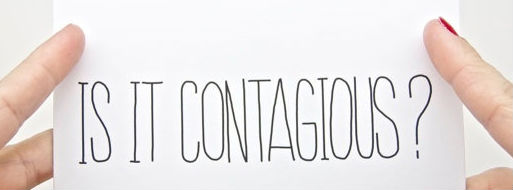
I previously wrote about suicide contagion in my post, “Is Suicide Contagious.” I wanted to revisit the topic, as I believe it is a real concern for those who have lost a loved one to suicide as they often ask themselves if their lives will end in the same manner as their loved ones.
Shortly after the death of actor/comedian, Robin Williams, the NY Times published an article, “The Science Behind Suicide Contagion.” In the article, the author notes the rise in suicide rates after a high profile suicide, with our youth being the most vulnerable. It has been proven that how the media reports a suicide is a major predictor in future suicide rates. So, what about contagion within the family tree? Does suicide in the family make you more vulnerable to suicide? It is a question that has come up time and again when talking with other survivors. Have I ever felt suicidal? No. However, after the loss of my father I will be the first to admit that I have feared that my life will end in the same manner as his.
I remember sitting at lunch with both Becky and Lindsay one afternoon when guns came up in conversation…yikes! Luckily we were not discussing the controversial topic of gun control, but instead our feelings about guns being in our home. We all had one thing in common; not one of us wanted a gun in our home. This had nothing to do with not liking guns, or believing that people should not own them. Our opinion on the topic was simple; we were all three scared of them. I remember feeling so thankful that I had these two to talk to about the topic. We laughed as we talked about how “crazy” our friends and family would think we were if we acknowledged we were afraid to have a gun in our home. One of us noted, “I am just afraid of doing something stupid” and we all agreed.
When you lose a loved one to suicide, suicide becomes so real. This is a very difficult concept for those who have not experienced loss in this manner. It is as if suicide is now a real tool in our toolbox full of coping mechanisms. We think to ourselves, “If life gets bad enough would I do the same thing?” It was a very scary thought for me, and one that ignited a fear that I had never experienced before. If it weren’t for that conversation with Becky and Lindsay, that fear may have crippled my ability to move forward on my grief journey. Like all fears, often times we have to acknowledge that we have it in order to move forward.
So, is suicide contagious? No. You can’t catch it and you are not born with a suicide gene. However, losing someone to suicide does make you more vulnerable. It is important that as a survivor we acknowledge that we are more vulnerable than someone who has not lost a loved one to suicide. I believe that having this awareness can actually be a good thing. Let me explain…
Both of my grandmothers were diagnosed with breast cancer at fairly young ages. One of them actually died from it. Knowing that not one but both of my grandmothers had this awful disease motivates me to always schedule my annual visit with my OB/GYN and to do monthly breast exams. I look at my father’s suicide with a similar set of eyes. I know that mental illness, not suicide, runs in my family. My father’s depression/anxiety and addiction likely (I say likely, because he is the only one who knows for sure) lead to his death. Knowing this has made me more aware of my own feelings and thoughts. Most importantly, it reminds me that I am not alone. That there is always someone there to reach out to in a time of need. His suicide has helped me get to know myself better, and I have found that life is simply too short to allow yourself to get strapped down by negativity.
Although it is not always easy, acknowledging our fears can be freeing. Most importantly it can help you make sense of something that may be difficult to understand. The thoughts, concerns, and fears that follow a suicide are overwhelming. But, they are warranted. As a survivor I will say, “Trust me, I understand.”



“We laughed as we talked about how “crazy” our friends and family would think we were if we acknowledged we were afraid to have a gun in our home. One of us noted, “I am just afraid of doing something stupid” and we all agreed.”
Quick questions….would you be considered “crazy” because you were afraid, or just because you did not wish to have a gun in your home? Either way, it seems you are reluctant to take a firm stance on gun control, and whether they belong in most households. Removing guns from homes is a primary step in suicide prevention. Are your friends all members of the NRA? In view of the mental challenges associated with most suicides, using the word “crazy”, even in quotation marks, seems unnecessary.
As far as commenting on being afraid of doing something stupid, was this referring to suicide? If so, I am sure you understand that this is a negative judgment that promotes the stigma surrounding suicide. Suicide is not a supid act, done by a stupid person. It has noting to do with a lack of intelligence. It has to do with mental challenge.
These points may seem critical or petty. That is not my intention. I like your blog, and I think it does a great service. I merely wish to offer a different point of view.
Thanks, and I am so sorry for your losses.
Thank you for your comments. I always welcome different points of view! I have opinions related to everything political, but choose not to use this blog as a place to take a stand, politically. Our blog welcomes everyone, despite what your political views are. This is why the direction of my post went where it did. It was simply my own reflections. I personally do not like words like “crazy” or “normal”; hence, why I put them in quotations. I understand you not liking my use of crazy or stupid…my intention was not to poke fun of anything or minimize the seriousness of suicide. I too am sorry for your loss!